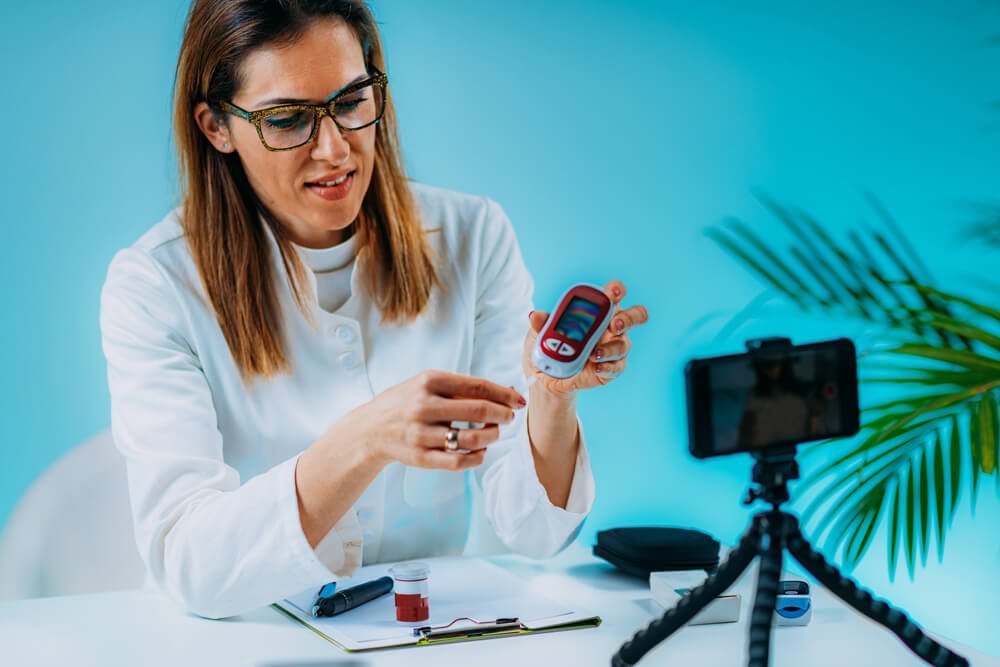
9 Ways Doctor on Call Services Are Transforming Diabetes Management
Managing diabetes has traditionally been a juggling act between lifestyle changes, medicine, and frequent visits. Technology is today creating new paths for treatment that let patients get medical attention without entering a busy clinic. In the field of telemedicine, where the integration of on-demand healthcare has made managing chronic diseases more proactive and customized, this change is particularly clear.
We investigate nine effective ways on-demand services are transforming diabetes control on this blog. Innovations in healthcare are enabling people to take charge of their health like never before with rapid intervention and customized treatment plans. The development of doctor on call services, which are redefining patient care by providing instantaneous medical advice and support, is one obvious advance in this field.
Timely Intervention for Glucose Fluctuations
Unexpected changes in blood sugar levels can cause anxiety and, occasionally, severe health problems for many diabetes sufferers. When symptoms start, immediate access to expert advice is absolutely vital. Timely consultations enable healthcare professionals to assist patients in modifying their diets or prescriptions before minor problems turn into crises. This proactive method guarantees that patients get precise recommendations that fit their present situation, in addition to lowering their chance of hospitalization. Patients said they feel more safe knowing that help is just a phone call away, particularly in those crucial times when waiting for a planned visit could be harmful.
See also: Conor Maynard Net Worth: $8 Million
Personalized Medication Management
Changing drugs is a sensitive chore that has to consider several elements, including food, physical exercise, stress, and coexistence with diseases. These changes could wait until the following visit in conventional care environments. Modern telehealth systems, however, let doctors instantly evaluate patient data. This maximizes blood sugar management by allowing quick and exact drug changes. Personalized advice can be provided when a patient’s readings go beyond the optimal range without a personal visit required.
Continuous Lifestyle and Nutritional Guidance
Many times, struggling with contradicting dietary recommendations, patients find it difficult to design a sustainable meal plan. By using virtual consultations, doctors can provide customized dietary advice that is in line with personal tastes and cultural customs. Based on real-time glucose monitoring, they can even advise changes and assist create reasonable meal plans and healthy substitutes. This ongoing support helps patients to make wise decisions that not only help to control their blood sugar levels but also boost general well-being. Including regular counsel in daily activities produces a long-term effect that goes beyond current medical requirements.
Integrated Support Through Home Nursing Services
For certain patients, particularly the elderly or those with mobility issues, controlling diabetes goes beyond scheduled visits. Their daily schedule now consists mostly of regular monitoring, insulin injections, and wound care. Delivering this hands-on treatment right to the patient’s house depends mostly on home nursing services. Regular check-ups, medicine delivery, and thorough documentation keeping by nurses help to guide continuous therapy changes. These services build a seamless care network, bridging the gap between in-person and virtual treatment by carefully cooperating with remote medical specialists.
Proactive Detection of Complications
Silent problems, including neuropathy, renal problems, and eyesight loss, abound with diabetes. Preventing these consequences from getting worse depends mostly on early detection. Virtual consultations help patients to report minor symptoms as they develop, therefore enabling early diagnosis. Medical personnel can rapidly suggest further testing or specialized consultations, therefore lowering the possibility of major consequences. This proactive strategy helps patients to have more stable quality of life and reduces long-term damage. Moreover, patients with symptoms of HIVs should take an HIV test at home Dubai.
Enhanced Patient Engagement and Education
Patient education is a pillar of good diabetes control. Understanding their disease empowers patients who participate more actively in their treatment. Through interactive telehealth sessions, healthcare professionals deliver instructional materials covering a broad spectrum of subjects, from knowledge of glucose monitoring devices to the value of regular physical exercise. These sessions are meant to be interesting and clear-cut so that patients may feel competent in taking care of their health. Real-time interactions help to instantly clear uncertainty, hence improving adherence to treatment guidelines.
Convenient Access for Busy Lifestyles
Many diabetics find it difficult to give their health first priority since they balance job, family, and other obligations. Offering consultations that fit even the busiest schedules, telehealth services have eliminated many of these obstacles. From a late-evening appointment from home to a short check-in during a lunch break, these services let patients obtain great treatment without interfering with their regular schedules. The ease of on-demand consultations guarantees that controlling diabetes becomes a natural aspect of daily life rather than stress.
Streamlined Communication and Record-Keeping
Good control of diabetes depends on consistent, clear communication between patients and doctors. Apart from virtual consultations, digital platforms provide strong record-keeping systems storing patient history, drug changes, and blood sugar records. Every session builds on a thorough medical history as this simplified method allows more accurate diagnoses and customized counsel. The openness and accessibility of their medical records help patients to monitor development over time.
Reducing Healthcare Costs Over Time
Managing a chronic illness like diabetes can have a major financial load. Frequent hospital visits, expensive emergency treatment, and long waiting times adding stress and cost, are common components of traditional care models. By providing reasonably priced substitutes that lower the need for in-person consultations, telehealth services serve to ease these demands. Early management and ongoing observation help to reduce problems, hence lowering the demand for emergency rooms and hospital stays. In addition to relieving patients’ financial burdens, this supports a more environmentally friendly healthcare system.
The Final Words
Millions of people worldwide still suffer from diabetes, so creative ideas are developing to change how patients control their illness. More instantaneous, customized, and efficient treatment is being made possible by the combination of telehealth and in-home care models. Patients are enabled to take more confident and supported charge of their health by adopting real-time monitoring, preemptive complication detection, and tailored lifestyle instruction.




